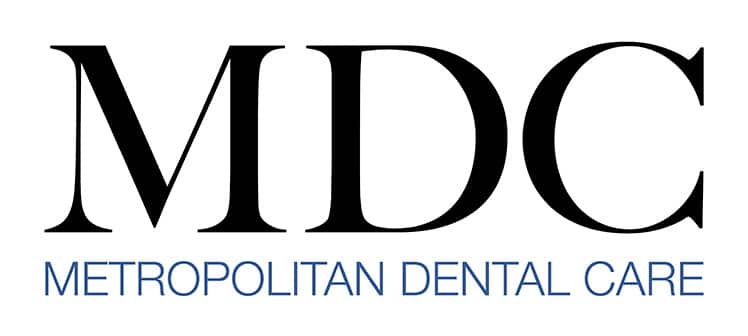Affordable and Effective Options for Tooth Replacement in 2019

Teeth are amazing facets of the human anatomy and are comprised of some of the hardest mineralized substances in the body. They are can withstand tremendous environmental stresses such as acidity, changes in temperature, everyday chewing, a build-up of biofilm, and often even nighttime grinding (or bruxing). Most of us floss, brush and see the dentist regularly. The reality is that despite even our best efforts, sometimes we lose teeth.
Options for replacing missing teeth can be divided into three main categories: implant dentistry, fixed bridges, and removable dentures.
Why replace missing teeth?
Teeth want to have a counterpart. When one tooth is lost, the opposing tooth will tend to erupt into that space looking for its counterpart to chew, or "super-erupt". The same is true for the teeth on either side of the missing space. These teeth tend to drift into the open space left behind by the missing tooth. When teeth start to drift or super-erupt, a person's entire bite can be disrupted. If left unattended, orthodontics would be necessary to move the teeth back into their proper position before replacing the missing teeth.
Additionally, our faces are aesthetically designed to have teeth to maintain everything from our smile to healthy alveolar bone. If this bone is lost, our faces begin to look different over time because of the loss of support of both our teeth and this very important alveolar bone. The distance from the nose to the chin will even diminish over time if enough loss of this alveolar bone takes place.
Lastly, teeth are essential for eating nutritious foods!! Without a healthy dentition, getting the proper nutrients for a well-balanced diet can be challenging. Fruits, vegetables, and
Implant Dentistry
Dental implants are the closest possible option for actual tooth replacement. We will be reviewing dental implants in-depth in our next clinical blog. Dental implants are usually completed in three steps:
1. Implant Placement: The dentist places the implant surgically in the upper or lower jaw. A “healing cap” is placed over the implant to protect it. Often bone grafting may be required either before or during implant placement.
2. Healing: Implants are so strong because the alveolar bone in the mouth actually grows around the implant, securing it into place and "osseointegrates", becoming a fixed anchor in the mouth.
3. Tooth Replacement: The dentist will have a custom crown, bridge, or denture made to fit your mouth and implants. These custom restorations are affixed into the implants with screw-retained abutments which hold the crowns, bridges, or dentures in place.
Advantages of Dental Implants as an Option for Tooth Replacement:
Durability: Successful implants that are properly maintained are designed to last for the rest of your life.
Fit & Feel: Dental implants are the most similar to a natural tooth. When fixed to dentures and bridges, they can improve the fit and feel tremendous, as well as your confidence. Most people can’t tell the difference between an implant and their natural teeth.
Option for Tooth Replacement Which Increases Bone Strength: Because implants are fused to the bone just like natural teeth, the risk of bone loss is lowest, which is essential for the health of the rest of your teeth, as well as your whole body.
Impact on Other Teeth: Crowns, bridges and partial dentures are fixed to the actual implant, and will not affect your natural teeth, which can help your smile last a lifetime!
Potential Disadvantages of Dental Implants:
Not Everyone Can Have Implants: A successful implant depends on healthy and sufficient bone to support and anchor the implant for life. Your dentist will complete a thorough examination and evaluation, including x-rays, to determine if implants may be an option.
Healing Time: Implants can take time to heal before the final crown or crowns are placed.
Immediate Affordability: Over time, dental implants have proven their value as the longest-lasting investment. However, the immediate expense for dental implants and the crown, bridge or denture is higher than fixed bridges and removable dentures.
Fixed Bridges
Another of your options for tooth replacement is a bridge which consists of a fabricated tooth or teeth (called a pontic ) that fills the space where one or more teeth have been lost, and is anchored in place on either side by crowns (also known as “caps” ) placed over existing teeth that have been “prepared” to accept the crowns.
Advantages of Fixed Bridges:
Durability: With proper care and maintenance, fixed bridges can last a long time, often longer than removable dentures.
Look & Feel: bridges often have a more natural look and feel than removable dentures. There is also typically less adjustment to a bridge.
Affordability: Fixed Bridges typically cost less than dental implants. However, the cost of maintaining and repairing a bridge may accumulate over time.
Potential Disadvantages of Dental Bridges:
Maintenance: Bridges require extra care and maintenance, including cleaning under the pontic. Folks who have fixed bridges still need to visit the dentist for regular exams to ensure the structure of the bridge is intact, and also to keep an eye on the anchoring teeth.
Durability: While more durable than removable dentures, fixed bridges should be treated with care. It is important to avoid chewing on very hard, sticky or crunchy foods where the bridge is located. Repairing or replacing bridges can become costly over time. For example, if they are not cleaned thoroughly every day, decay can occur at the junction of the porcelain to the tooth. If decay does occur and bacteria compromises the integrity of the bridge, it will need to be replaced.
Removable Full or Partial Dentures
These options for tooth replacement can be helpful for people who are missing several or even all teeth. Full and partial dentures are designed to be worn every day and removed at night. They are designed to sit over the gums and around any existing teeth.
Dentures are created by taking an impression of the gums and any existing teeth. Options for Tooth Replacement and taking careful measurements. The impressions are fabricated by a dental lab. At 1st Family Dental, we encourage folks who are having dentures made to bring in a friend or loved one during a try-in to help make sure the look of the denture is as natural as possible.
Advantages of Full or Partial Dentures:
Repair: Dentures are typically easier to repair than a fixed bridge.
Maintenance: Dentures are easier to clean and maintain than a fixed bridge. Regular visits to the dentist for exams, x-rays, and adjustments are required to ensure the denture fits properly and to monitor bone health.
Affordability: Dentures typically cost less than some fixed bridges or dental implants. However, over time the cost of repair or replacement can accumulate.
Potential Disadvantages of Dentures:
Durability: Because dentures are removable, there is a greater chance that they may be lost, broken, or even eaten by the dog. Dentures may need to be relined, or even replaced.
Potential Bone Loss: While bone health and density for everyone is different, a denture can help slow bone loss, but is not as effective as an implant.
Fit & Feel: Dentures can also be hard to get used to, and can even be uncomfortable at first and require several follow up visits to adjust the fit of the denture. Speaking and saying certain sounds may be difficult at first, and chewing can also be challenging. It can take practice and patience to get used to a denture.
Impact of teeth next to the bridge: Preparing a tooth means shaving it down, which impacts the overall structure and health of the tooth. This can also cause pain and discomfort. This also means there may be a greater chance that problems may arise with the prepared teeth in the future.
Do you have questions or comments about your options for tooth replacement? Feel free to email or call us for a consultation. At Metropolitan Dental Care we feel that communication between patient and doctor is crucial to the success of any treatment. To further inform you of possible options, please see our educational videos under the "Patient Info" header as well!
